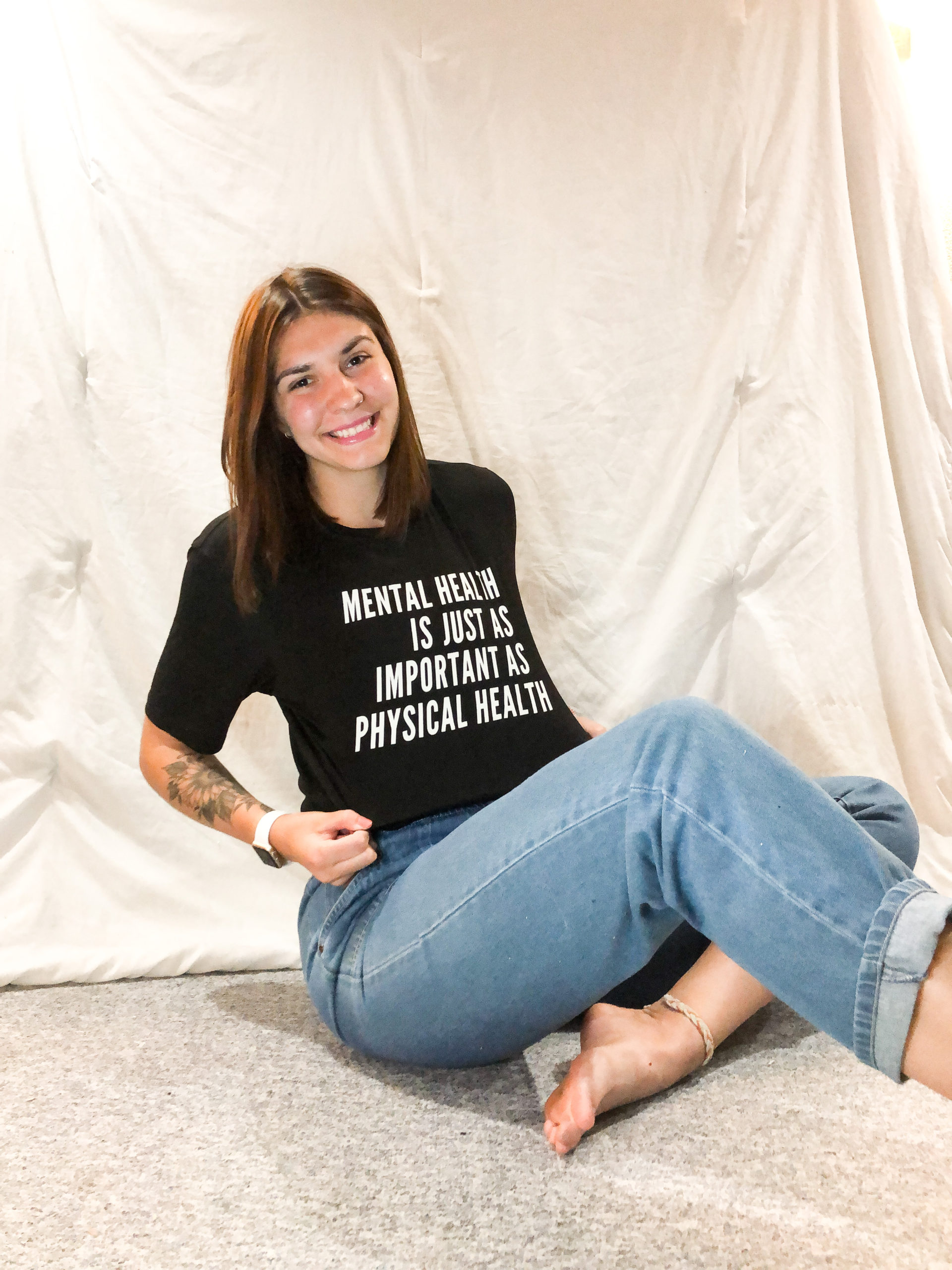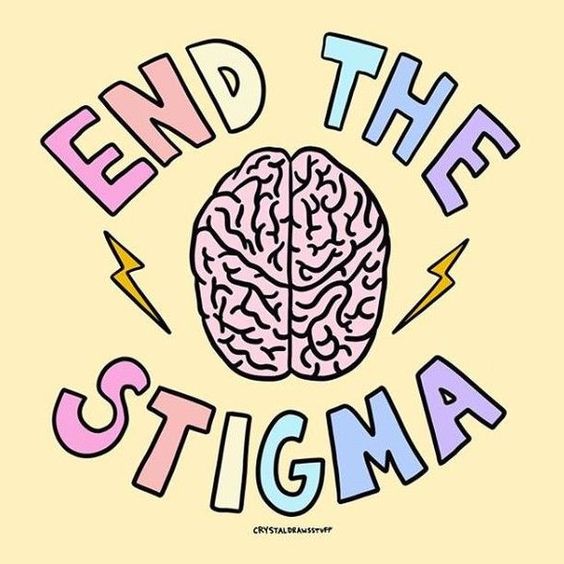Last week was Bell Let’s Talk Day, an annual day in Canada where the telecommunications company Bell raises money for mental health initiatives across social media. This day has been Annual since 2010 and has raised a lot of money in that time, but more than that, it has raised AWARENESS about mental health and helped normalize talking about it in day to day life, working to dismantle stigma around mental illnesses.
I originally wanted to write about mental health and post a picture, but when I realized I had a lot written down I decided to make a video instead! You can watch the video on my Instagram here.
Or, you can find it below, for the people who prefer to read like I do.
So, without further ado, let’s talk Mental Health.
Mental health, what even is it? Have you ever read a definition of it?
Well, HEALTH as defined by the WHO is “a state of complete physical, MENTAL, and social well-being and not merely the absence of disease or infirmity.”
The best definition I have heard and prefer is that, “mental health refers to our thoughts, feelings and behaviors.:
It’s no secret that mental health is important to me and that I have had my own struggles with my mental health. It never will be a secret for me and doesn’t need to be, but I understand and feel for the people who feel that way.
It’s scary to be vulnerable.
It’s scary to let people in.
It’s scary to think about people possibly judging you for your mental health or lack thereof.
But the way I see it, every time another person speaks out, another person shares their story of struggle, every time another person says “hey I need some help here” it’s another step to normalizing mental health.
It’s time to erase all those stereotypes and notions you’ve heard before.
It’s 20 fricken 20 and saying you are not okay is not weak and it’s not a cry for attention. You are not “crazy” you don’t need to just “get over it” and it’s okay that even though you try to be happy you actually won’t always be happy at the time.
If you want to share your story, #bellletstalk is a perfect day to start. You don’t have to share on social media. Start by writing it down, or telling ONE person. No experience is too small or too big.
You should never be judged for having more or less trauma than someone when talking about mental health. It’s not a competition of who has survived more or been through the worst. If people make you feel that way. STEAR CLEAR, they don’t yet understand.
IF YOU ARE STRUGGLING
- Check in with yourself
- Do what you need to do
- Seek help when you need it
Step 1. Check in with yourself
Check in with yourself regularly, what does your best-self look like, feel like, and can you notice when you start to get off track before things really amplify?
How do you practice self-compassion? Are you talking kindly to yourself, or do you beat yourself down? GIVE YOURSELF A BREAK.
Do what you need to do to build yourself up. That is:
Step 2. Do what you need to do
What types of activity build your self-esteem?
These activities should give you either a sense of competence (what are you good at), control (what are you in charge of) or belonging (a part of a community).
Anything from physical activities, artistic outlets, organizational habits, social connections or setting healthy routines can be a way to fill yourself back up. The list is really endless and there are so many options but you have to find what works for you!
For myself, I have recently really gotten into coloring books, they give me something to focus on so my mind doesn’t wander. A lot of down time can be a trigger for me so I need to keep myself busy. I also love puzzles, physical activity, cooking and writing.
If struggles are lasting and intense (typically more than weeks), please seek help. Whether that first step be a trusted friend or family member, and then progress to a doctor or mental health care professional. Together you guys can come up with a game plan on how to tackle the problem whether that be medication, or therapy techniques of some kind.
SO, YOU KNOW SOMEONE STRUGGLING
People don’t always know how to help when someone is struggling, so try not to get too mad at them if you are the one struggling. If you are trying to reach out, read this next section and put it into practice!
Maybe you’ve tried to offer help before like…
“Try working out, you’ll feel better after”
“You should meditation”
“Get on medication that’s the only way you’ll get better”
These are cool suggestions yeah, but the best thing you can do for someone that is struggling is just BE THERE. By trying to tell them what to do or what to try it can minimize what they are feeling and experiencing even if it is coming from the best of places.
If someone is truly struggling, you can bet that they have tried to find ways to make things better and hearing suggestions on things to try can feel like you are saying that if they change their physical activity they will suddenly be cured.
It can be hard to know what to say or how to help, like it can be in any other tough situations where someone is sick. That’s why I have some steps below about how to effectively BE THERE.
STEPS
- say what you see
- Show you care
- Hear them out
- Know your role
- Connect them to help
- Say what you see
Let them know that you have noticed they have been off lately, without being accusational. Try something like,
“Like hey you’ve cancelled going out with the girls the last few weeks, is everything okay?”
.
- Show you care
Ask them what you can do, ask them if they want to talk, ask them how they are, really.
- Hear them out
respect their answers, and LISTEN to them
.
Keep letting them know you are there for them. I promise you they read your messages, but sometimes for someone struggling it’s even too much to try to respond to those messages. Keep trying to make plans even if they cancel. Don’t give up on them.
- Know your role
You don’t have to be the person to save someone, it’s a lot to handle, and know that you don’t have to do it alone. If you need help in the process make sure you get that help for yourself.
- Connect them to help
That brings in number 5. Suggest that they get help that they need
If you think someone is going to hurt themselves or is in danger it’s time to seek immediate help from authorities.
I want to make it clear that I AM NOT A MENTAL HEALTH CARE PROFESSIONAL, just passionate about the topic, and always available to lend and ear.
All of this information about helping yourself and others is from jack.org and a class I am taking to become a certified speaker with them! Check out www.jack.org to check out their great resources (especially for young people).
Bethere.org is also another great resource about how to help yourself and others and goes over the same steps in this article in wayyyyy more detail!
Thanks for reading,
Be Kind;




You must log in to post a comment.